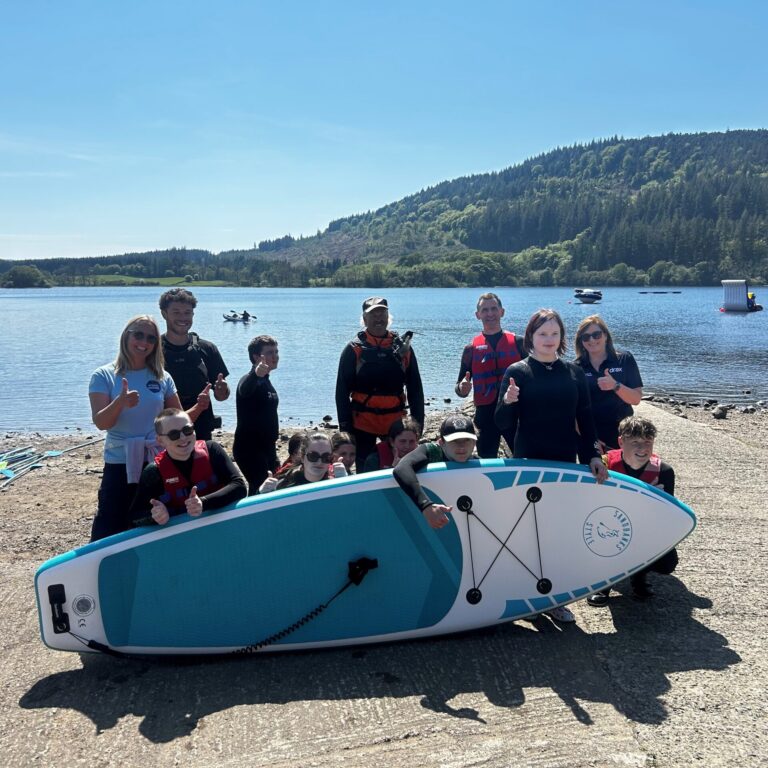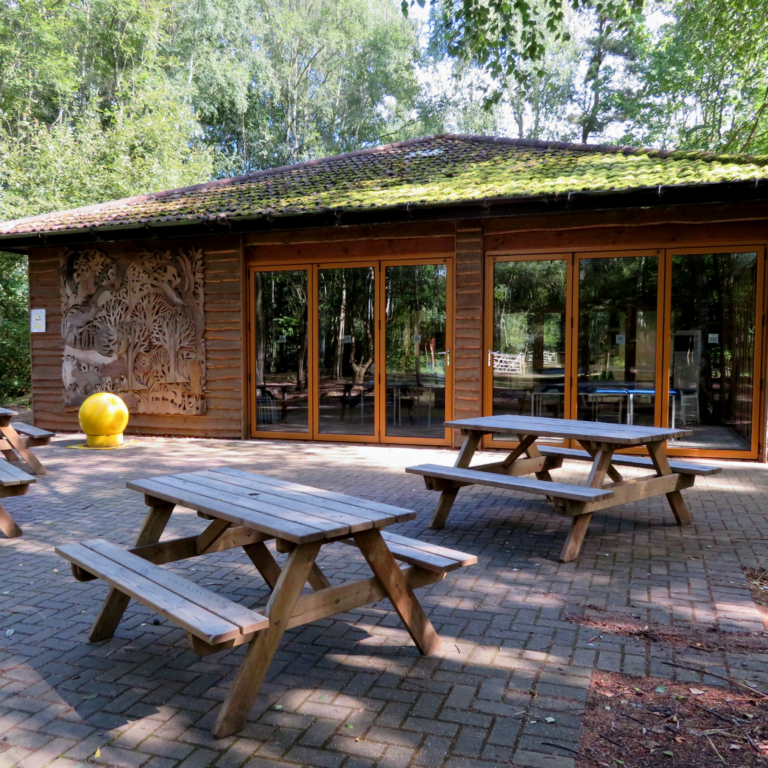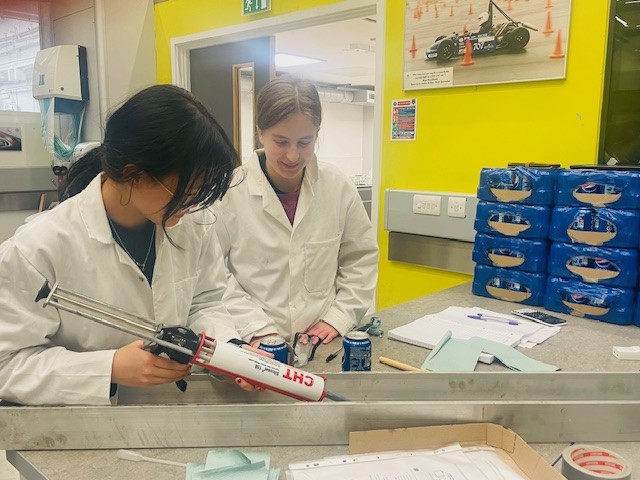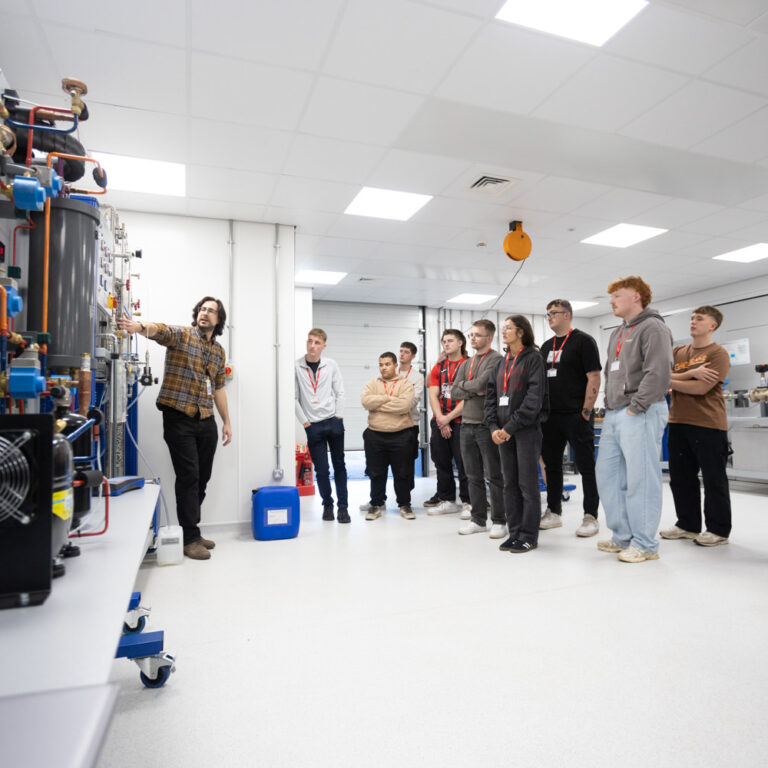Jane Breach, Community, and Education lead for Drax Power Station
Key takeaways:
At Drax, we have a long-lasting commitment to promoting Science, Technology, Engineering, and Maths (STEM) education in the Yorkshire and Humber region and beyond.
Delivering the Zero Carbon Humber and the East Coast Cluster initiatives means that we will need a highly skilled labour force to help us reach the region’s goal of building the world’s first net zero industrial region. In practice, this will create roughly 50,000 new jobs in the region – requiring a workforce who are proficient in new and emerging low carbon technologies.
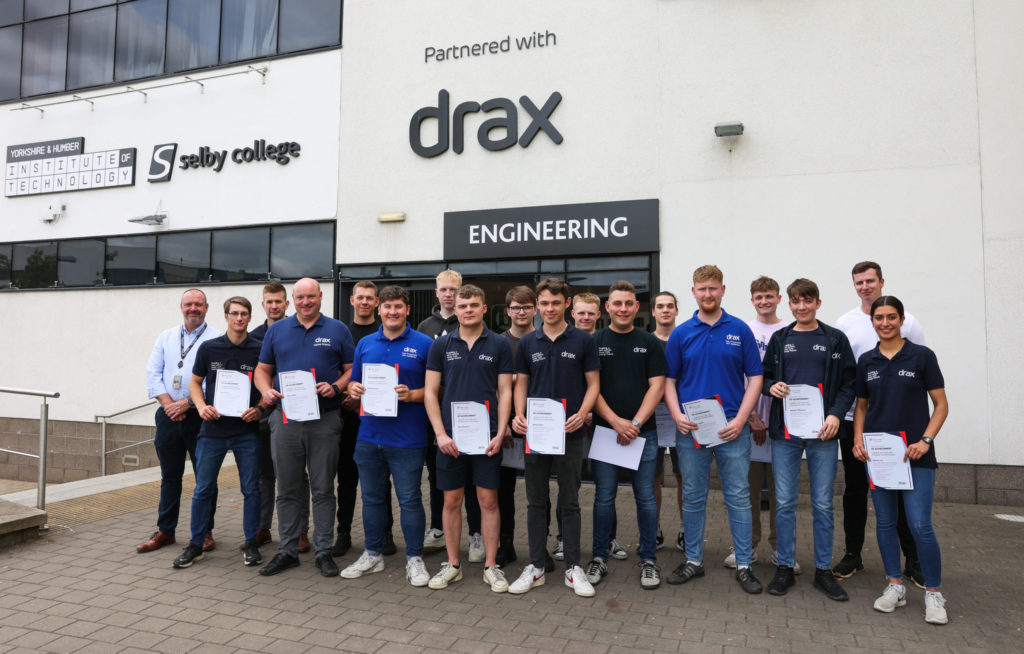
But investing time and resources into local education is about more than just preparing for the energy transition. It’s about working with our local communities to build a longer term support framework for them and helping to support social mobility from primary school upwards.
Businesses in education
We have a responsibility to be a good neighbour, support education in our local area, to help secure our talent pipeline, and provide inspiration.
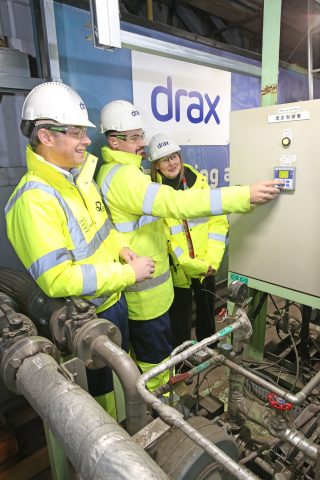
Bruce Heppenstall Drax Plant Director, Lewis Marron, Drax 4th Year Apprentice, and Liz Ridley Deputy Principal at Selby College.
One way we’re helping to develop the next generation of green economy colleagues is through our partnership with nearby Selby College. In 2020, we announced a £180,000 five-year partnership with the college, aimed at supporting education and skills. Last year, we expanded our partnership even further and developed the UK’s first educational programmes dedicated to carbon capture.
Working together, we secured more than £270,000 in funding from the government for the programme, enabling the college to create a new training course in carbon capture, usage, and storage (CCUS) technologies. Our engineers work closely with the college, developing a syllabus that will equip both current and future Drax employees with the vital skills needed to operate negative emissions technology.
This even includes a rig that mirrors the CCUS equipment used in our bioenergy with carbon capture and storage (BECCS) pilot, giving students the chance to work with real equipment rather than just the theory. We believe that by showing students the kind of work we do on-site we can give them a deeper understanding of how we operate.
The Department of Education highlighted the success of our partnership as an example of how business and education can work together – something I believe is crucial to bridging the emerging low carbon skills gap.
The skills gap and future STEM workers
Our work with Selby College has highlighted the significant need to educate and upskill the UK’s workforce in low carbon technologies as quickly as possible. Although most organisations recognise the need to decarbonise, they are uncertain about what they and their employees need to do to achieve this.
There are a lot of conversations about the need for green skills and re-skilling employees in carbon-intensive sectors but to put a real definition on what’s needed is a lot harder. Every company must examine its business plan and try to unpick what skills they will need in 10, 20, or even 50 years down the line – and in such a fast moving world this can prove to be a real challenge.
At Drax, we’re committed to building on our values, as an innovative and best in class place where we care about what matters. We aim to do this by identifying training needs that are linked with new technologies beyond just BECCS, and working together with educators to make sure the relevant courses can either be distributed to other SMEs and large companies or adapted to help retrain people in other sectors.
Our commitment to STEM and education starts with young people and a hands-on curriculum delivered by our engineers to help support teachers. We want to develop deeper, more impactful education programmes that offer them multiple interactions with Drax, our engineers and operations throughout a person’s education.
In my role, you don’t always see the immediate impact. However, when you start talking to people, you realise that you’ve impacted them at some stage on their career journey. That impact is what’s really important to us and to building a net zero Humber.







